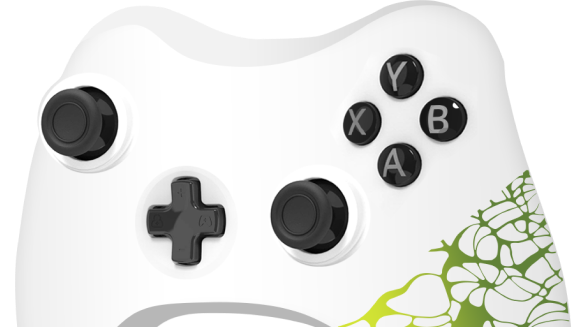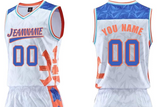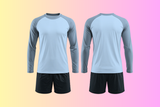In the ever-evolving landscape of modern business, offering customized products can be a strategic move for businesses aiming to enhance customer satisfaction and increase loyalty. Customization allows companies to cater to the unique preferences of their customers, creating a more personalized shopping experience that can lead to higher conversion rates and brand advocacy.
The Push to Customize Products
Customization in business isn't just a trend; it's a response to consumer demand for products that reflect individual tastes and preferences. As seen in successful campaigns like Coca-Cola's "Share a Coke" or Spotify Wrapped, personalization can significantly boost customer engagement. According to research by Epsilon, 80% of consumers are more likely to purchase from a brand that offers personalized experiences. This shift is not limited to luxury items but spans various sectors, including technology and everyday consumer goods.
Personalization vs. Customization
It's crucial to distinguish between personalization and customization. Personalization involves using data to tailor marketing and communication to fit within a broader service offering, while customization modifies the product itself to meet specific customer demands. For instance, Nike allows customers to design their sneakers, and Dell offers customizable PCs, which not only meet specific user needs but also enhance the overall customer experience.
Strategic Implementation of Customization
Before diving into customization, businesses must evaluate their operational capabilities and financial viability. Customization requires a robust backend setup to handle customer data and an efficient manufacturing process to create personalized products without compromising on quality or delivery times. Companies like Lenovo and Nissan have excelled in this area by integrating customization options that allow customers to choose specific features like car engine colors or laptop specifications.
Examples of Successful Customization
Several brands have set benchmarks in product customization. Medelita offers tailored lab coats, Pottery Barn provides monogrammable home items, and Starbucks features highly customizable drink options. These examples show that customization can be applied across different product categories and price points, making it a versatile strategy for enhancing customer relations and boosting sales.
Benefits of Product Customization
- Enhanced Customer Satisfaction: Offering customized products can significantly increase customer satisfaction. When customers receive products tailored to their preferences, it creates a sense of uniqueness and exclusivity, making them feel valued and appreciated by the brand.
- Increased Customer Loyalty: Customization fosters a deeper connection between the customer and the brand. Satisfied customers are more likely to become repeat buyers and brand advocates, promoting the company to their friends and family.
- Higher Conversion Rates: Personalized products often lead to higher conversion rates. When customers can customize their purchases, they are more likely to complete the transaction, reducing cart abandonment rates.
- Premium Pricing Opportunities: Customization allows businesses to offer premium pricing for personalized products. Customers are often willing to pay more for items that cater to their specific needs and preferences.
- Valuable Customer Insights: Customization provides valuable data on customer preferences and trends. This information can be used to improve product offerings, marketing strategies, and overall customer experience.
Overcoming Challenges in Customization
While the benefits are clear, the challenges of customization cannot be overlooked. Businesses need to find the right balance in offering customization options without overwhelming customers. Overly complex choices can lead to decision fatigue, resulting in cart abandonment. Effective customization strategies involve starting with a limited range of customizable options and gradually expanding as you gather more data on customer preferences.
Technology and Customization
Advances in technology have made product customization more accessible and efficient. Tools such as 3D printing, augmented reality (AR), and artificial intelligence (AI) have revolutionized the way businesses approach customization. For example, AR allows customers to visualize how customized furniture will look in their home, while AI can analyze customer data to recommend personalized products.
Future Trends in Product Customization
As technology continues to evolve, the future of product customization looks promising. Some emerging trends include:
- Mass Customization: Combining the efficiency of mass production with the personalization of customization, mass customization allows businesses to offer tailored products at scale. Companies like Adidas are already using this approach with their custom footwear lines.
- On-Demand Customization: With the rise of on-demand manufacturing, businesses can offer real-time customization options. Customers can design their products online, and the items are produced and shipped immediately.
- Sustainable Customization: As consumers become more environmentally conscious, sustainable customization options are gaining popularity. Brands are focusing on eco-friendly materials and processes to create personalized products with minimal environmental impact.
- Subscription-Based Customization: Subscription services that offer customized products are on the rise. Companies like Stitch Fix provide personalized clothing selections based on customer preferences and feedback, creating a unique shopping experience.
Conclusion
Customization is more than just a marketing strategy; it's a business model that requires careful planning and execution. By understanding customer preferences and leveraging the right technology, businesses can deliver personalized products that meet the growing demand for individuality and personal expression. Whether you're a small startup or a large corporation, the ability to offer customized products can significantly differentiate your brand in a crowded market.
For further insights and detailed case studies on product customization, visit Business.com, Neil Patel's Blog, The Good, and Smart Customizer. These resources provide valuable information on how to successfully implement and benefit from product customization.




